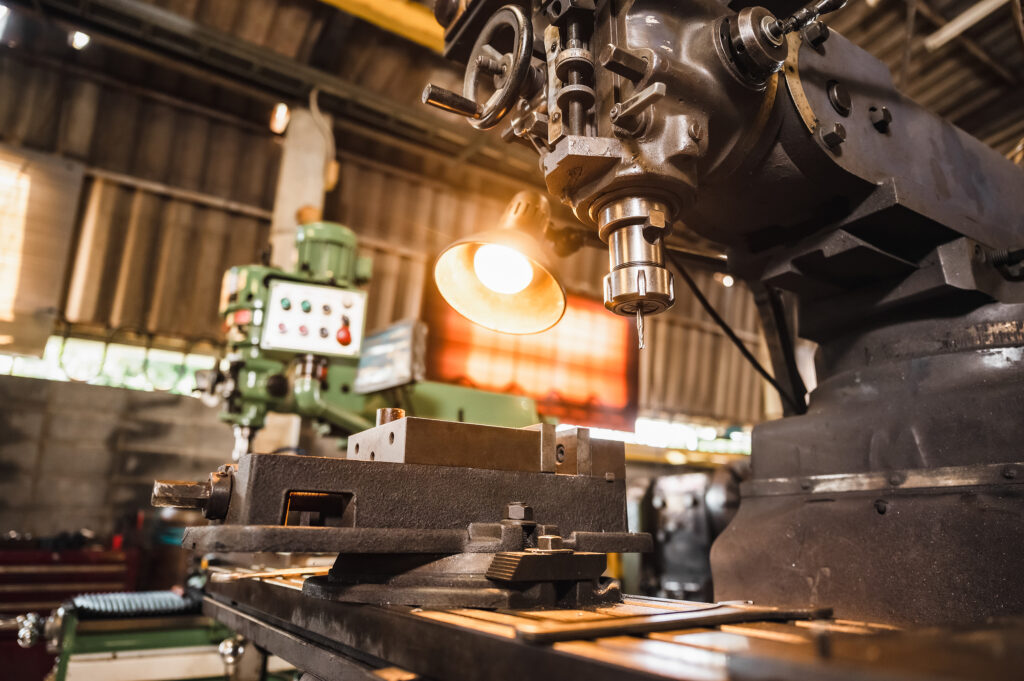
Realizing the potential of transformative change
By Jayson Myers
Digital Transformation In-Depth Innovation & Technology Sustainability Aerospace Automotive Chemicals Construction Electronics Energy Food & Beverage Forestry Government Manufacturing Packaging Resource Sector Transportation advanced manufacturing transformative change
Photo: Mick Koulavong /iStock / Getty Images Plus/Getty Images
Manufacturing is critical to the economic prosperity of all Canadians. It’s more important than ever in a world of escalating geopolitical risk, where we are faced with many global challenges. These include climate change, food and water shortages, and health crises. However, the future for manufacturing in Canada will be brutish, nasty, and short, if manufacturers themselves are unable to take advantage of the transformational challenges that lie ahead.
Manufacturing is the business of making things. However, if that’s all companies do – get more and more product out the door at lower and lower costs – manufacturing will not survive in Canada. That’s a commodity game in which companies are being rapidly driven out of business.
Manufacturing in Canada must become a solutions-based business focused on customized value, not just volume and cost reductions alone. The future lies in advanced manufacturing.
Advanced manufacturing entails the use of leading-edge technologies and techniques to grow the business by solving problems and making things – often new things – for customers, in significantly better ways. How companies make the transition to advanced manufacturing will determine their ability to sustain customer demand, compete, and grow.
What companies make is important; so too is how they make them. Manufacturers need to offer their customers a unique value proposition to compete and grow in today’s fast-paced and highly competitive business environment. They need to offer a solution – a product or service – that their customers can manage, at a level of quality and convenience their customers expect, at the time their customers want, at a price point their customers can afford, and do all that better than anyone else.
Innovation is key. It’s a global race. Manufacturers around the world are in a rush to create new and better solutions, new ways of adding value through the products and services they offer, new ways of generating revenue, and better ways of responding to and taking advantage of the transformations that are reshaping the industry around the world.
Stepping back a bit, you can see five interrelated transformations that are creating new and unprecedented business challenges, opening new commercial opportunities, and leading to new ways of doing business for manufacturers in Canada and elsewhere.
First, market conditions are rapidly changing as competition intensifies and customers, stakeholders, investors, and governments are demanding more customized products and services, immediate response, and more stringent compliance with responsible environmental, social, and governance practices. The short-term weakness manufacturers are currently experiencing in market demand created by inflation, higher interest rates, and a slowing economy is temporary. It will be structural changes in global markets and customer preferences that will disrupt manufacturers long-term.
Supply chain disruptions are a second source of structural change. They are elevating the risks of global sourcing, forcing companies to restructure their supply base, while creating new business opportunities for companies agile and innovative enough to offer new solutions to new customers.
Sustainability is a third long-term transformative force. The need to cut emissions, eliminate harmful products, and address global challenges related to industrial impacts on the environment is forcing manufacturers to adopt new technologies to monitor and reduce their carbon footprint and their resource requirements, but also create new business and supply chain models based on environmentally-friendly products, circular economies, supplier traceability, and full life-cycle product management. Sustainability will become a hot topic in 2025 when Canadian insurance companies and banks begin to require their industrial clients to report their carbon emissions and those of their suppliers.

Photo: gorodenkoff/iStock / Getty Images Plus/Getty Images
Demographic challenges are also driving transformation in manufacturing. Labour shortages will only get worse as a quarter of Canada’s manufacturing workforce will retire by 2030 and fewer workers are entering the labour pool. Companies will need to automate simply to keep production levels where they are today, let alone grow. Skills shortages will also become more acute. The problem will not be solved through immigration. It must be addressed through a concerted effort to skill, upskill, and reskill workers in manufacturing occupations.
Finally, there is the impact of technology itself. The rapid development and deployment of advanced digital, materials, and production technologies are helping manufacturers make significant improvements in productivity by increasing operating efficiencies, enhancing production flexibilities and employee capabilities, speeding up new product design, testing, and engineering, and strengthening supply chain collaboration by connecting customers and suppliers more effectively. They are enabling the creation of new products, new data-based services, and new lines of business. At the same time, they are threatening the long-term viability of manufacturers whose businesses are being disrupted by new and improved products and services. Canada’s auto parts sector is on the front line of disruption as the industry transitions to electric vehicles.
Manufacturing is the ultimate integrator of technology. Technologies are the modern tools that manufacturers use to generate value for their customers, improve operating efficiencies, and connect with customers and suppliers. However, technologies by themselves are not sufficient to achieve desired business outcomes. Their commercial potential in manufacturing can only be realized when they are applied and integrated in manageable, cost-effective solutions that can be demonstrated to work at full-scale levels of production.
It takes strategic leadership to determine business objectives and to navigate the challenges and pursue the new opportunities arising in a dynamic economic environment. Specialized management skills are needed to implement technology solutions, continuously improve business and production processes to maximize operating efficiencies and enable the value chain collaboration required for rapid innovation. Most importantly, people need to be employed who can work together with the skill sets necessary to use technologies productively, sustain process excellence, and achieve desired business results.
No single company can manage all the risks or take advantage of future opportunities on its own. Collaboration will be critical for business success – researchers, technology providers, and manufacturers working together to develop, adopt, scale up, and commercialize new products and processes fast. Industry coming together to solve common skills challenges, demonstrate best practices, and build the infrastructure required for successful scale-up of new manufacturing companies. Governments, businesses, and financial services need to understand what it takes to run a successful manufacturing operation, not just develop a new technology.
We need to look at what it takes to support the development and scale-up of new manufacturing businesses in emerging fields like biomanufacturing and life sciences, robotics, advanced materials, microelectronics, and smart devices. The ability of Canadian technology companies to commercialize solutions, scale up, and grow into globally competitive enterprises has long been recognized as a weakness in converting Canada’s stellar record in research and development and our world-leading start-up ecosystems into real economic benefit for Canadians. It all depends on manufacturing – on innovation partnerships and developing and applying the value-adding solutions that our tech companies can bring to the sector.
Is this a role for government? Partially. However, leadership must come from manufacturers themselves. It will be the ingenuity and entrepreneurship of business leaders who want to build and grow their business in Canada and who see that as an industry and economy-wide endeavour that will make the difference. Let’s hope we are up to the task.
________________
Jayson Myers, the CEO of Next Generation Manufacturing Canada, an award-winning business economist and advisor to private and public sector leaders. E-mail jayson.myers@ngen.ca. Visit www.ngen.ca.
